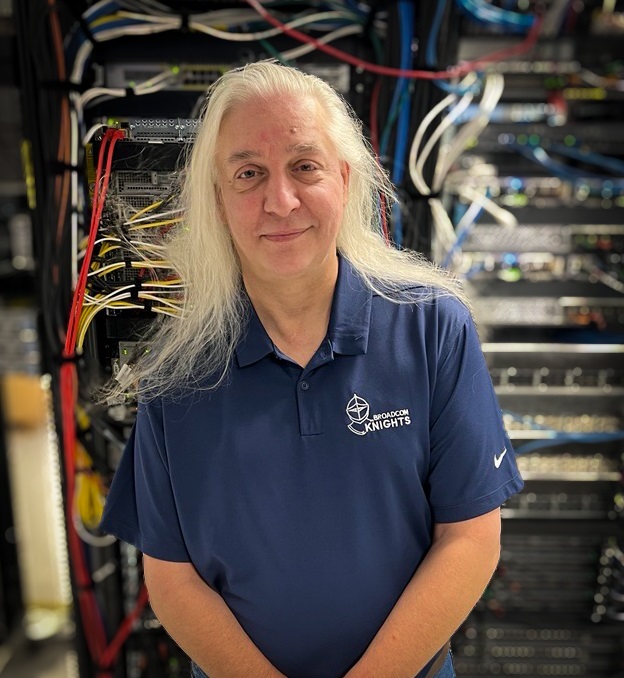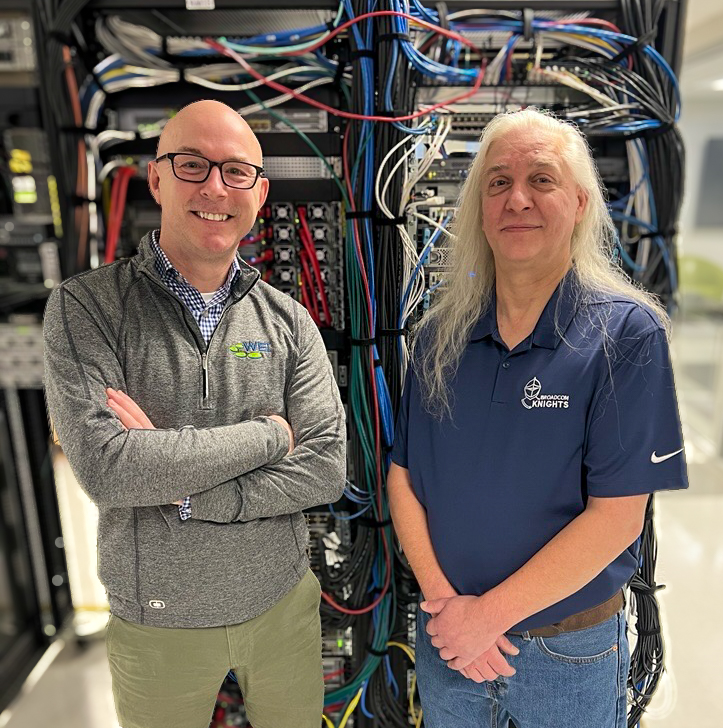
The great AI transformation is well underway, and I see it in nearly every conversation I have with IT leaders today. According to a McKinsey report from April 2025, data centers are projected to require $6.7 trillion worldwide to keep pace with the AI-fueled demand for compute power by 2030. That’s staggering, and it reflects just how urgently enterprises are pushing into unfamiliar territory.
At WEI, I lead our technical resourcing practice. My job is to help clients find the right people to support big transformation efforts like these. Because while AI may be about automation and analytics, the reality is this: success still depends on human talent.
I talk to CIOs and infrastructure leaders who are asking the same two questions:
- Do we have the right technology to stay competitive?
- Do we have the right people to actually use it?
For many of them, that second question is becoming the harder one to answer.
What is Staff Augmentation?
Staff augmentation isn’t new. But in today’s fast-paced, resource-constrained environment, it’s proving to be one of the most valuable levers IT leaders have. I work with organizations that need to move quickly but don’t have the internal bandwidth or time to wait for HR cycles.
My team connects them with experienced professionals who can contribute immediately. Whether it’s a six-week cloud deployment or a year-long AI platform rollout, we build technical teams that move at the speed of your priorities.
Why Augmentation Matters in the AI Era
AI is exciting, but it’s also messy. I’ve seen clients stall because they tried to scale AI initiatives with existing teams that were already stretched thin. You need specialized roles like data pipeline architects, model integrators, and AI-aware security engineers, and you need them fast.
1. It Enables an Incremental Approach to AI
Most companies are not “going all in” on AI. Instead, they’re piloting use cases: smarter chatbots, workflow automation, forecasting engines, or secure AIOps. But experimentation still needs expertise.
Staff augmentation allows IT teams to hire cautiously, bringing in AI-focused architects, data engineers, or platform integrators only when needed. It’s a low-risk way to gain exposure, capture lessons, and build internal confidence over time.
This approach also avoids the trap of hiring FTEs for skills that may not be needed long term.
2. It Delivers the Specialized Talent AI Demands
AI is not one job. It’s a stack of niche competencies. From machine learning operations to edge inferencing, success depends on roles like:
- Data pipeline and big data architects
- Cloud-native developers (Kubernetes, containerization)
- Model integration specialists
- Cybersecurity engineers trained in AI-specific risks
- DevOps and automation leads
- AI compliance and ethics SMEs
WEI’s augmentation services give clients access to these roles on demand, without requiring long-term budget commitments or time-consuming hiring cycles.
3. It Speeds Up Project Execution
One of the biggest barriers to AI adoption is internal bandwidth. Staff augmentation solves that. By supplying pre-vetted engineers, developers, or project managers, initiatives get moving faster and reach deployment sooner.
WEI also supports faster ramp-down, which helps align talent investments with actual value realization rather than arbitrary timelines.
Real-World Examples
- Financial Services – Ensuring Operational Continuity: One Northeast-based financial services company needed help maintaining infrastructure continuity while their internal team tackled a massive cloud migration. WEI provided certified engineers to stabilize day-to-day ops while internal resources refocused. The result? No outages, no overwork, and on-time project delivery.
- Retail: Multi-Site Rollout with No Downtime: One of my favorite examples is a national retailer we supported with a tech refresh across 1,700 stores. We augmented their engineering team, and over 30,000 parts were configured and delivered. Not a single deadline was missed.
- Crisis Engineering Support: WEI’s technical resourcing team also plays a vital role during emergencies. Whether responding to outages, security incidents, or vendor transitions, our staff augmentation model allows for rapid-response engineers to step in immediately—often within 24 hours.
AI may be the current headline, but digital transformation is the longer arc. According to WEI’s own research, organizations adopting staff augmentation benefit from:
- Faster time to value on major IT initiatives
- Increased flexibility in adjusting talent levels as priorities shift
- Improved project outcomes from the infusion of new ideas and skills
- Better alignment between IT execution and business objectives
The WEI Advantage: More Than Just Staffing
Staff augmentation is a strategic capability. Here’s what sets WEI apart:
- Award-winning resourcing team with deep industry specialization
- Rapid match of technical talent to project needs across all domains
- Certified engineers (80+ industry certifications) for projects requiring compliance or architectural depth
- Onsite training and labs so your team doesn’t just get help, but grows through the process
And when the job ends, WEI doesn’t disappear. We offer:
- Knowledge transfer
- Post-project support
- Guidance for next-phase staffing
AI won’t replace your IT team, but it will absolutely change the kind of team you need. If you’re responsible for getting these initiatives off the ground, it’s worth asking yourself: Do I have the right people for the job ahead? With WEI, you gain a partner who understands how to align skillsets, accelerate timelines, and de-risk innovation.
Whether you need help tomorrow, or you’re planning your 2025 roadmap, WEI’s staff augmentation team is ready. Contact our team to learn more.
Next Steps: Explore the critical role of apprenticeships in bridging the cybersecurity talent gap. Featuring insights from Greg Palmer and Jeff Cassidy of CyberTrust Massachusetts, the discussion highlights how apprenticeships provide hands-on experience, cultivate diverse talent, and help participants acquire specialized skills essential to cybersecurity roles.



